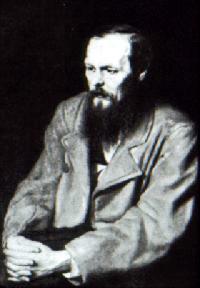Books
The Archbishop of Canterbury Reads Dostoevsky

Rowan Williams, Archbishop of Canterbury, has recently written a book about Fyodor Dostoevsky, author of Crime and Punishment and The Brothers Karamazov. The book—Dostoevsky: Language, Faith, and Fiction—has drawn some controversy, not so much for its content, but for the question of whether it should have been written in the first place. Some object to Williams taking time off his duties as Archbishop (when the Church of England faces difficulties on its home turf) to pen his reflections on a long-dead Russian writer. Why bother about old books when there are more pressing concerns?
Those who turn to great literature for spiritual nourishment and guidance know better. When times are difficult, re-reading the prophetic words of a profound thinker like Dostoevsky is not only recommended, it’s necessary. In an interview with the Telegraph, The Archbishop said, “I think it is some part of this job to try and keep stirring the cultural pot, even in a very limited way, and to say: when we are having all these debates about faith and atheism and science and so on, don’t let’s forget what lives of faith actually look like imaginatively, in ways that really serious writers and artists portray them, because if your view of religion is confined to a few fundamentalist platitudes, there’s no debate there.”
By AT 10.09.08 04:32PM Not Rated
As St. Augustine gave witness by writing The City of God even as the Visigoths were crashing the gates of Hippo and invading and sacking Rome, which at the time was pretty much synonymous with the end of the world, one of the advantages of being a Catholic Christian is that your horizon is not only historical but eternal: you are free to give yourself to what is important, not only what is urgent. It’s sad how this attitude has now even become a cause for scandal. And it’s yet another symptom of our post-Christian consciousness and growing enslavement to good old (and I mean old) Chronos.
Ironically, doing what is important usually has a much more direct, practical, lasting, and beneficial effect on the course of history, but unfortunately as a rule this can only be seen in hindsight.
I for one think the Archbishop is setting a great example and look forward to reading his book.









By salindger AT 10.07.08 03:20AM Not Rated
I wonder if Benedict XVI would receive similar criticism. Yet I don’t hear complaints when he publishes books. If Benedict were to write a book on Dostoyevski, I wonder how it would be received?